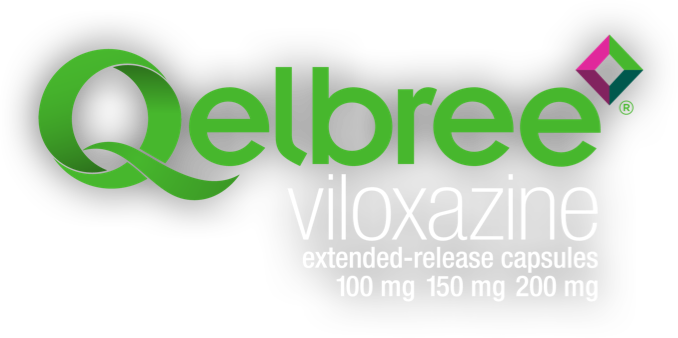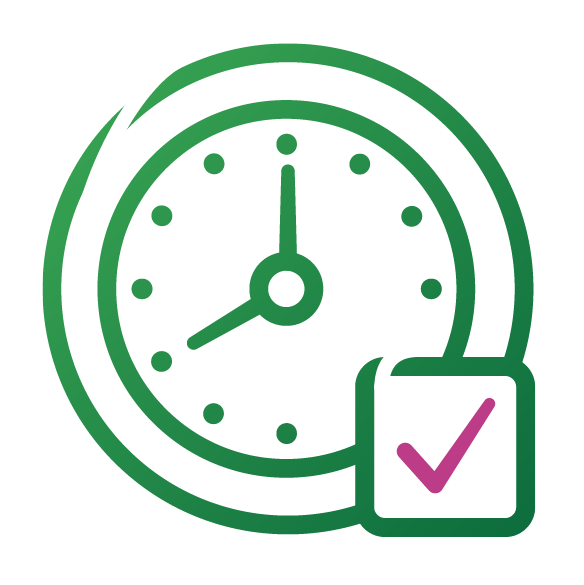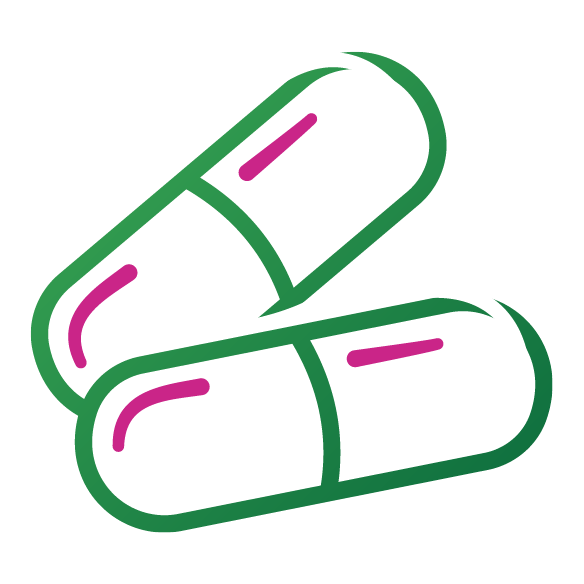
Results with Qelbree
Qelbree is a non-stimulant treatment for ADHD in children ages 6-17 that offers full-day coverage. Qelbree has been proven effective and safe* in clinical trials, and may be the right treatment option for your child.
*Important: Monitor your child for mood or behavior changes. Your child’s doctor should also monitor for changes in blood pressure and heart rate.
Proven results
Qelbree is proven to significantly reduce ADHD symptoms in 3 clinical trials
In clinical studies, Qelbree—a non-stimulant—was proven to help effectively manage ADHD symptoms.
Rapid and extended release for full-day coverage.
By reducing the impact of ADHD symptoms, Qelbree can help improve your child's difficult behavior related to ADHD. Qelbree met the goal of 3 different clinical trials – a significant reduction in ADHD symptom scores in 6-8 weeks. For some patients, Qelbree reduced ADHD symptom scores as early as week 1.
Your child’s doctor can recommend Qelbree as part of a total treatment program that may include counseling and support therapies.
Clinical Trial Results
How we ran the studies:
Qelbree was studied in three clinical trials involving boys and girls ages 6-17 years who had been diagnosed with ADHD.
The studies measured what kind of changes in ADHD symptoms these children experienced over the course of the six- to eight-week clinical trials. They measured the frequency and severity of ADHD symptoms, including inattention, hyperactivity, and impulsivity.

Qelbree showed significant reduction in symptoms compared to placebo.
Qelbree was consistently proven to be effective and safe in multiple clinical studies in over 800 patients with a once-a-day convenient dose.

"I definitely didn't think I would get to this place"

A school routine that’s
achievable
All things Qelbree, all at your fingertips
Check out the Qelbree brochure for an easy-to-reference roundup of key treatment info, plus helpful tips for managing your child's ADHD.
Safety profile
Qelbree is proven to be safe*, with manageable side effects
In clinical trials, Qelbree was consistently proven to be a safe and effective treatment for ADHD, with a low incidence of side effects.
*Important: Monitor your child for mood or behavior changes. Your child’s doctor should also monitor for changes in blood pressure and heart rate.
The majority of these side effects did not cause children to stop treatment with Qelbree.
Qelbree is not a controlled substance, and there was no evidence of abuse.
Sometimes, parents consider a planned break or "drug holiday" from a medication due to side effects. This is a conversation you should have with your child and with their doctor before considering a break.
Qelbree is unlikely to have any negative interactions with stimulants like methylphenidate and amphetamine.
Most Common Side Effects
Side effect
Placebo
Qelbree
Somnolence (drowsiness)‡
4%
16%
Decreased appetite
0.4%
7%
Tiredness
2%
6%
Nausea
3%
5%
Vomiting
2%
4%
Irritability
1%
3%
Trouble sleeping§
1%
4%
‡Somnolence: somnolence, lethargy, sedation.
§Trouble sleeping: initial insomnia, insomnia, middle insomnia, poor-quality sleep, sleep disorder, terminal insomnia.
Only 3% of participants taking Qelbree discontinued the clinical trial due to side effects, whereas 1% of those taking the placebo discontinued the clinical trial.
Savings and Resources
Learn more about the resources available to you with Qelbree.



